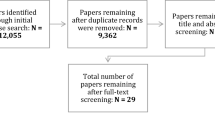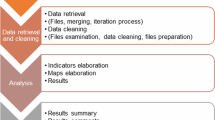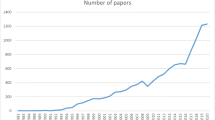Abstract
VR and AR can bring changes not only to the everyday life of society, but also in humans’ cognitive capacity to perceive and imagine, giving them the opportunity to experience what is not possible in the real world, and equipping them with the possibility to see objects, places and situations that cannot be seen in reality. Technologies change the field of education, the way people learn and the way they acquire knowledge; consequently, changes need to be made in the way students are taught and in how their knowledge is assessed when using these technologies. In the context of VR/AR educational experiences, significant transformations are needed; in particular, these experiences move away from local teaching to translocal teaching as the virtual world gives students the possibility to disconnect from their physical environment. VR/AR can be combined with haptic solutions and ideas of gamification to support learning and provide diverse experiences. Both the socialisation process and the environment are partly transformed, and virtual communities are created which, in turn, advance new challenges to the teaching and learning process.
Similar content being viewed by others
References
Bloom BS, Engelhart MD, Furst EJ, Hill WH, Krathwohl DR (1956) The taxonomy of educational objectives: the classification of educational goals. Handbook I: cognitive domain. David McKay, New York
Bloom BS, Hastings JT, Madaus GF (1971) Handbook of formative and summative evaluation of student learning. McGraw-Hill, New York
Daniela L (2019) Smart pedagogy for technology enhanced learning. In: Daniela L (ed) Didactics of smart pedagogy: smart pedagogy for technology enhanced learning. Springer, Cham, pp 3–21
Fowler C (2015) Virtual reality and learning: where is the pedagogy? Br J Educ Technol 46(2):412–422
Jonassen DH (2000) Transforming learning with technology: beyond modernism and post-modernism or whoever controls the technology creates the reality. Educ Technol 40(2):21–25
Lytras MD, Visvizi A, Daniela L, Sarirete A, Ordonez De Pablos P (2018) Social networks research for sustainable smart education. Sustainability 10:2974
Author information
Authors and Affiliations
Corresponding author
Additional information
Publisher's Note
Springer Nature remains neutral with regard to jurisdictional claims in published maps and institutional affiliations.
Rights and permissions
About this article
Cite this article
Daniela, L., Lytras, M.D. Editorial: themed issue on enhanced educational experience in virtual and augmented reality. Virtual Reality 23, 325–327 (2019). https://doi.org/10.1007/s10055-019-00383-z
Received:
Accepted:
Published:
Issue Date:
DOI: https://doi.org/10.1007/s10055-019-00383-z




